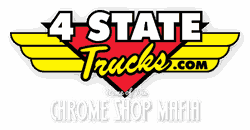- Home
- Freightliner Parts
- Freightliner M2 Business Class Parts
- Freightliner M2 Business Class Drivetrain Parts
Freightliner M2 Business Class Drivetrain Parts
Upgrade Your Freightliner M2 Differential and Transmission Components
Key benefits of products in this product lineup include increased drivetrain reliability, longer component lifespan, and smoother overall truck performance. Many of the components are designed as direct replacements for original equipment, ensuring a seamless fit and easy installation. Customers will also find unique solutions like specialty tools, lubricants, and hardware to streamline common drivetrain maintenance tasks.Get Quality Aftermarket Replacement Parts
Whether you need to repair a damaged component or simply want to proactively maintain your Freightliner M2's drivetrain, this product lineup offers a comprehensive selection of high-quality replacement parts and accessories to keep your truck running strong. The wide variety of models, makes, and part numbers covered makes this an essential resource for Freightliner M2 owners and fleet managers.Frequently Asked Questions About Freightliner M2 Business Class Drivetrain Parts
Will these drivetrain parts fit my specific year and model of Freightliner M2?
Most drivetrain components for the M2 Business Class are compatible with models from 2003 to present, but there are important variations. Pre-2007 models often use different transmission mounting patterns and driveshaft lengths compared to 2007+ models. Always verify your truck's VIN and specific configuration (106, 112, or Extended Cab) before ordering. Key differences include: manual vs. automatic transmission compatibility, single vs. tandem axle configurations, and wheelbase length which affects driveshaft specifications.
What are the most common signs that my M2 drivetrain components need replacement?
Watch for these indicators: vibration that increases with speed (often U-joints or carrier bearing), clunking noises during gear changes or acceleration (transmission mounts or universal joints), gear oil leaks around the differential or transmission (worn seals), difficulty shifting or grinding noises (clutch or transmission issues), and excessive play in the driveshaft. Address these symptoms promptly as drivetrain problems can cascade quickly, turning a simple U-joint replacement into major transmission or differential damage.
Can I install these drivetrain parts myself, or do I need special tools?
While experienced mechanics can handle many drivetrain repairs, several components require specialized tools and knowledge. U-joint replacement needs a proper press or U-joint tool, driveshaft work requires precise balancing equipment, and transmission components often need specific pullers and alignment tools. Differential work typically requires bearing pullers, dial indicators, and torque specifications. For safety and warranty reasons, we recommend professional installation for major components like transmissions, differentials, and complete driveshaft assemblies.
What's the difference between OEM and aftermarket drivetrain parts for my M2?
OEM parts guarantee exact fit and original specifications but come at premium prices. Quality aftermarket options from manufacturers like Spicer, Meritor, and Dana often match or exceed OEM standards at 20-40% less cost. Key considerations: aftermarket U-joints and carrier bearings typically perform identically to OEM, remanufactured transmissions and differentials can offer excellent value with warranties, but stick with OEM for critical electronic components like speed sensors or ABS tone rings. Always verify the manufacturer's warranty and whether parts meet original torque and load specifications.
How often should I service my M2 drivetrain components, and what maintenance prevents premature failure?
Follow these service intervals: check U-joints and slip yokes every 15,000 miles or during oil changes, inspect driveshaft balance and carrier bearing every 50,000 miles, change differential fluid every 100,000-150,000 miles (more frequently for severe duty), and service manual transmission fluid every 250,000 miles. Critical prevention tips: keep U-joints properly greased (every 5,000-10,000 miles), maintain proper driveline angles to prevent premature wear, check transmission and differential breathers to prevent contamination, and address any leaks immediately to prevent bearing damage. Proper maintenance can double the lifespan of these expensive components.



